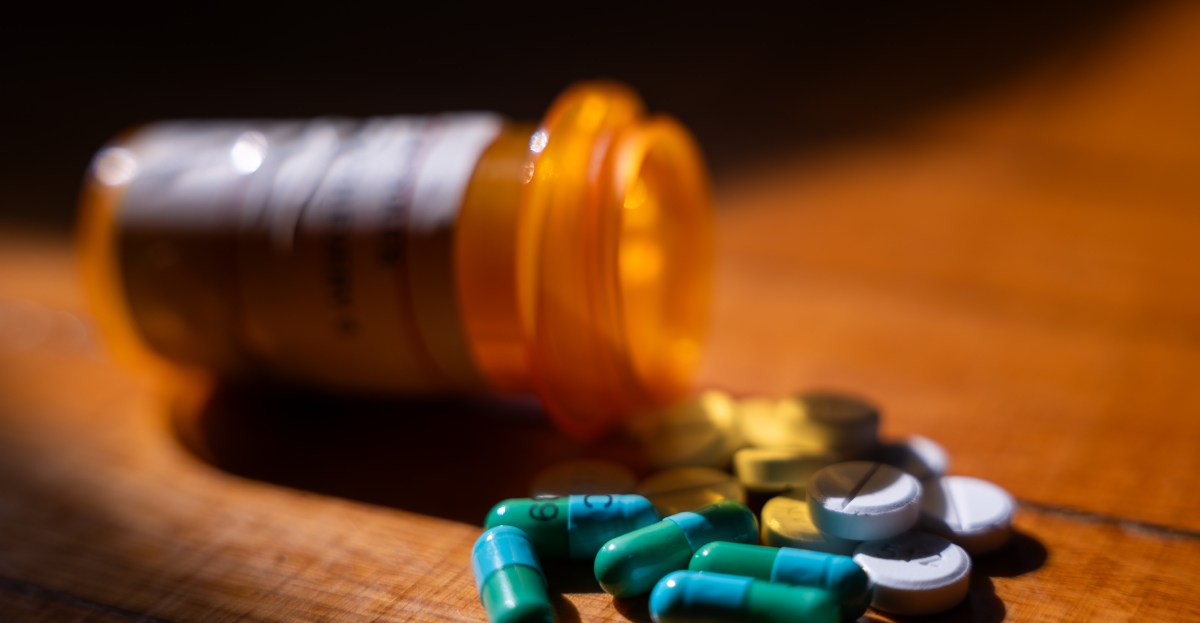It is a harrowing proposition: that in trying to control drug prices for 67 million Medicare patients now, we might inadvertently prevent the development of future drugs that could save lives. Implied, if not stated outright, is that we’re putting a cure for cancer or Alzheimer’s or some other intractable disease in jeopardy.
But we have good reasons to believe that the current policy won’t have such a trade-off any time soon. For one, pharma is hugely profitable, and these negotiated prices, while potentially chipping away at profit margins, should hardly entirely dampen the incentive to innovate, according to a couple of key studies of the industry. Two, if we are worried about future innovation, we should be focused on making it cheaper to develop drugs – and this is actually one area where AI is showing promise. By identifying the best candidates for possible treatments early in the research process, we could speed up development and continue to reduce costs — without losing out on tomorrow’s breakthroughs. …
FTFY…
Big Pharma claims lower prices will mean giving up miracle
medicationsexecutive pay and bonuses.Haha no they meant what they said.
They’re not giving up their pay/bonuses.
The correct answer is neither.
Miracle drugs are almost exclusively funded, or heavily subsidized, by the public sector. Typically through NIH grants, or other public funding mechanisms through the University system.
R&D budgets for a big pharma go to things like reformulating existing brand name drugs, to prevent them going generic as they are supposed to under current law. Or other high return, reduced effort, drugs i.e. new dick pills, narcotics, etc.
Executive pay and bonuses are not going anywhere, no matter what happens with these drug prices. They will cut their company to the bone, and then collude with private equity to take them private and gut it, before they ever considered cutting down their bonuses or stock options.
I benefit from an orphan drug, and the R&D was most definitely subsidised by the public purse.
My insurance pays a few grand a month for it.
The mfg coupon covers most of the rest, minus a copay.
This is the second iteration of the original drug. The first hasn’t meaningfully fallen in price and only the original company can manufacture and distribute the generic even under the name of competitors.
There was no breakthrough in the second iteration, and the logic to solve the “problem” they solved was straightforward. So now I pay more, for an anecdotally less effective version that addresses a risk irrelevant to me but present in the original.
There is yet a third iteration on the way.
Shock revelations:
- pharma companies are greedy and will double dip against both government subsidies and patients/insurance at every opportunity.
- XX Pharma didn’t pay for the original R&D, my gov did.
- if one replaces Na with a/several similar elements, one still ends up with a salt, often resulting in a drug variant that “doesn’t affect blood pressure” and offers no other real benefits, nor risks.
- Clinical trials for said alternative salt are broadly leas expensive than for the original. That does not result in lower prices.
Nationalise pharma research, if not the manufacturers.
Also, generics are often manufactured in countries with, shall we say, fewer controls and regulations. Know who makes those pills and where. If you can’t stomach the FDA reports on that manufacturer, find a pharmacy who will sell you something else…
This is correct. We pay for R&D, they keep all the profits.
Seems like a good reason to nationalize the industry.
It pretty much already is. All major drug discoveries this century received at least as much public funding as private.
And despite helping to foot the bill no money ends up going back to the public.
And public ownership of patents for drugs discovered by public institutions is explicitly forbidden by law.
Wtf that’s so stupid
Assuming lower prices were mandated in the future, what is their alternative? Develop zero new medications and subsist on the current drugs they offer with soon to expire patents? I doubt their competitors will be sitting idly by waiting for their eventual demise. Their argument is so superficial.
I doubt their competitors will be sitting idly by waiting for their eventual demise
That’s why you do M&As with your profits until there aren’t any competitors left
Aren’t most of the RND costs paid for through government grants and donations…
shush! ^the ^peasants ^don’t ^need ^to ^know ^that!
For one, pharma is hugely profitable
This is just like Uber and Lyft threatening to pull out of markets when the taxes go up a bit. The horror, they’ll have slightly shittier margins and can’t survive with slightly less profit
Won’t somebody think of the jobs in their marketing departments that have bigger budgets than the R&D departments?!?
Even if they’re right, that just means I won’t be able to afford those “Miracle Medications” anyway…
Miracles don’t happen.
Penicillin was a kind of miracle. But it wasn’t locked in a vault and used to extort a handful of wealthy people for every penny they were worth.
The real miracle of penicillin was in how it got such universal adoption and use in so little time.
Science isn’t a miracle. It’s the hard work of scientists. Perhaps pharmaceutical companies should be required to operate with the same transparency as nonprofits.
How could they possibly derive profits from drugs nearly wholly theorized and funded through government grants? Think of the shareholders and their inability to siphon your taxes into their pockets! Think about them often, especially when you pass by their offices visible through brittle glass. Let them know your feelings.
They aren’t wholly theorized and funded by the government.
By far the most expensive step of drug development is the phase 3 clinical trial, the final stage before a drug can be released. The government doesn’t fund those at all. Government mostly funds pre-clinical trials (ie in animals or tissue culture) which are way cheaper.
The average government grant for a biomed research proposal is nearly $600,000.
The average phase 3 clinical trial costs $20 million.
Should be a non-issue for them to fund the billions in research grants afforded to universities, then. Privatizing profits and socializing the initial investment. Just saying, I’d like a hundred extra dollars per year. Were these entities so beneficent as to avoid bankrupting people forced to use their medications, I might feel differently.
Government-funded research is typically basic science research. It results in general knowledge that is usable by anyone, ie it does not support a specific product. No pharma company will pay for something that helps competitors as much (or possibly more) than it helps them.
For example, government-funded research showed how injected mRNA could be directly absorbed and expressed by human cells in tissue culture. That remarkable discovery can be used by any pharma company to make a product. So pharma companies started developing various mRNA vaccines, and testing them in humans (Moderna, Pfizer, etc). But no pharma company would have funded the initial research that showed this was possible.
Thanks for weighing in. Is there somewhere I can learn more about this? Big Pharma getting rich off tax payer funded research is an often repeated claim on internet forums, and I’d like to educate myself some more on this topic. Thanks!
In general, I think “Big Pharma gets rich off taxpayer funded research” is kind of like “Ford gets rich off taxpayer funded roads” or “Apple gets rich from taxpayer funded schools”. They are true in one sense, but that doesn’t mean those companies would pay for those things. That’s why government ends up paying for common goods.
Note that “Big Pharma gets rich off taxpayer funded research” is different from “Big Pharma charges more than necessary to cover its own research costs.” You can find a pretty good analysis of those costs here.
Without price controls only the rich will be able to afford those “miracle” cures anyway.
This hits the point already. Look at those weight loss drugs that help people lose weight and are needed by certain other people.
Look at all the celebrities all of a sudden on them and regular people’s insurance won’t cover them. The regular folks who need them have trouble getting them as a result.
I wouldn’t believe anything Big Pharma says.
Big Pharma is so fucking greedy we’re already starting to run out of useful new antibiotics because they aren’t as profitable as Big Pharma wants.
Let’s not conflate the business side of pharma and the science is pharmacology. The main reason we don’t have new antibiotics is mostly due to the evolutionary arms race against bacteria that quickly develop resistance typically within a year.
No conflation. It’s both. It’s because everything is privatized / sacrificed on the altar of capitalism. Yes, bacteria evolves quickly, but that doesn’t explain the huge gap in development efforts. It’s a complication, definitely. But, I reject the idea that this is the primary reason. More like an excuse.
The idea that better drugs will be discovered by AI is laughable, though. It can help the search, but it can’t predict the trial outcomes well. The system is too complex, and we don’t have the data.
AI will cut down the time it takes, which is still helpful.
Trust me bro. One time I saw an ai claim that it’s possible to make lsd out of sodium chloride and distilled water. It was ai generated so it must be true.
Until they can cure cancer they have no leverage
Right. Because a miracle medication wouldn’t make a ton of money anyway what with it being a fucking miracle medication.
Giving up miracle medications from them








